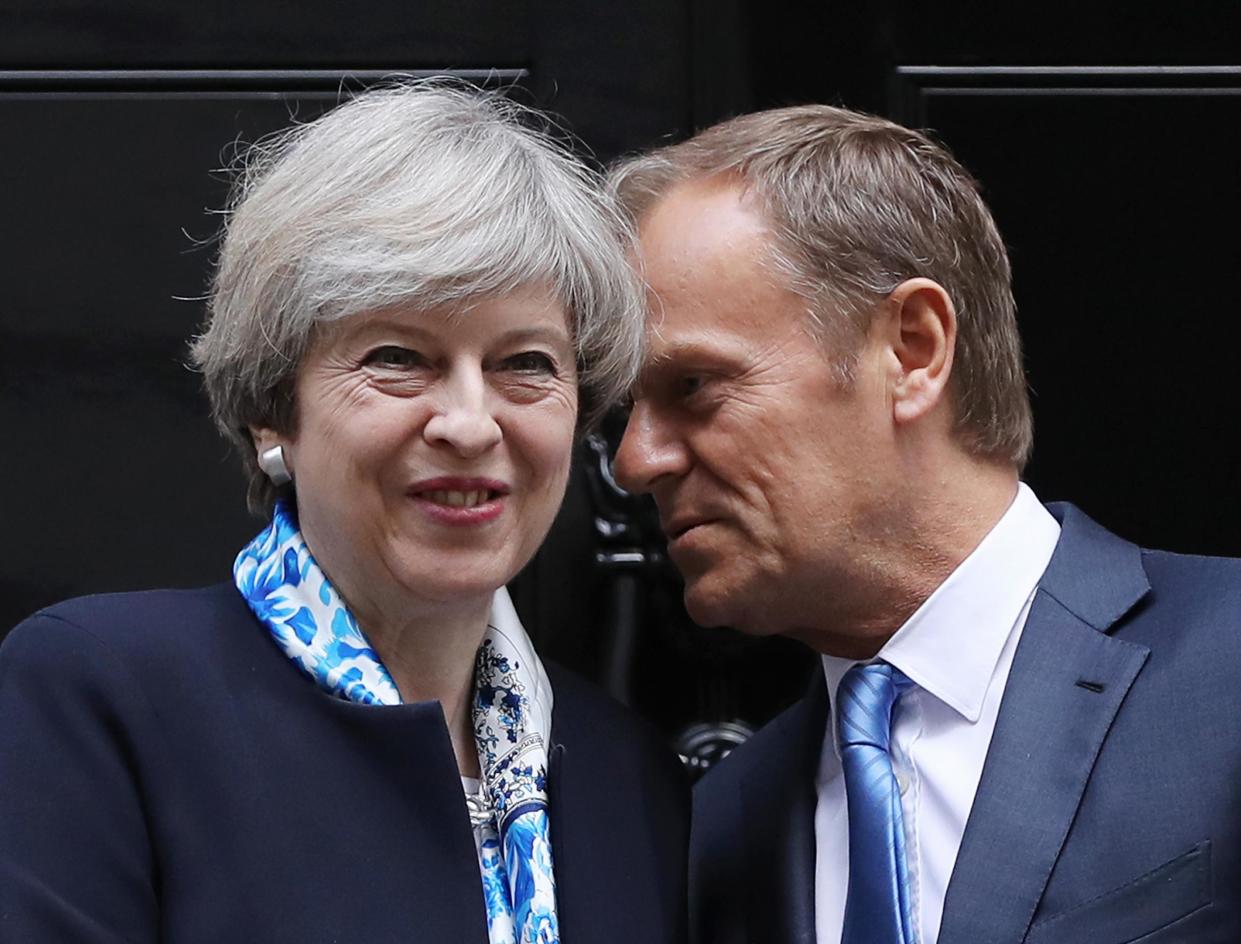Remaining 27 EU countries agree Brexit guidelines as Hollande says UK must 'pay price'

The EU 27 have unanimously agreed their guidelines for the forthcoming negotiations with the UK, in a meeting that lasted “one minute” and ended in spontaneous applause, as the draft guidelines were ratified without a single major alteration.
Donald Tusk, the European Council President, said the guidelines had been "adopted unanimously", adding: "The EU 27 firm and fair political mandate for the Brexit talks is ready.”
Meanwhile, the European Commission President Jean-Claude Juncker said he felt the UK was underestimating the challenges of Brexit.
At a press conference after the summit , Mr Juncker said: “I have the impression sometimes that our British friends, not all of them, do underestimate the technical difficulties we have to face.
“A single and not simple question of citizens’ rights is in fact a cortege of 25 different questions which have to be solved.
“So this will take time and if we want to be precise and to deliver guarantees to citizens, this will take a huge amount of time.
"Although, as a Commission we have already prepared a text which could be adopted immediately if our British friends would be ready to sign it, that will probably not happen.”
French President François Hollande said the UK must “pay the price” for its decision to leave the EU.
“There will inevitably be a price and a cost for Britain, it’s the choice they made,” Mr Hollande said as he arrived at the summit.
“We must not be punitive, but at the same time it’s clear that Europe knows how to defend its interests, and that Britain will have a less good position outside the EU than in the EU.”
Mr Hollande has only a few weeks left to serve as President of France, as the country is about to elect his successor, but he dismissed suggestions that Theresa May could strengthen her negotiating hand through the snap general election.
“I can understand the electoral argument but it will not influence the EU. The EU’s principles and the objectives are already fixed, these will be the lines chosen by negotiators,” he said.
Luxembourg Prime Minister Xavier Bettel put Ms May’s decision down to internal, not international problems..
“It’s an internal problem she wants to resolve in the Conservative party, to have not a hard Brexit or a soft Brexit, but Theresa’s Brexit,” he said. “We are very united, you seem surprised, but it’s a fact.”
The EU’s chief Brexit negotiator, Michel Barnier, said it was in Britain’s interests for the EU to be unified, as it would improve the chances of a deal being struck with the UK.
“This extraordinary meeting shows the unity of the 27 on a clear line, but this unity is not directed against Britain, I think that it is also in its interest,” he said.
Mr Tusk had said the remaining EU states must “remain united”, adding: “It is only then that we will be able to conclude the negotiations which means that our unity is also in the UK’s interest.
“As for now I feel strong support from all the EU institutions, including the European Parliament, as well as all the 27 members states. I know this is something unique, but I am confident that it will not change.”
Only a small number of amendments were made to the draft guidelines, which now list securing protections for EU citizens resident in the UK ahead of its financial obligations - reversing the previous position.
Along with citizens' rights, the disputed “divorce bill” the UK will have to pay on exit - estimated at a potential £50 billion - and the question of how to maintain a free-flowing Irish border are among the key issues.
Mr Tusk said “sufficient progress” on all three were needed before the EU's future relationship with Europe and trade deals could be addressed, in spite of Ms May's call for parallel talks.
"We all want a close and strong future relationship with the UK – there is absolutely no question about that," he said.
"But before discussing our future we have to sort out our past, and we will handle it with genuine care, but fairly. This I think is the only possible way to move forward.
“We also need solid guarantees for all citizens and their families who will be affected by Brexit on both sides. This must be the number one priority for the EU and the UK. And the Commission has already prepared a precise and detailed list of citizens' rights we want to protect.”

 Yahoo News
Yahoo News 
